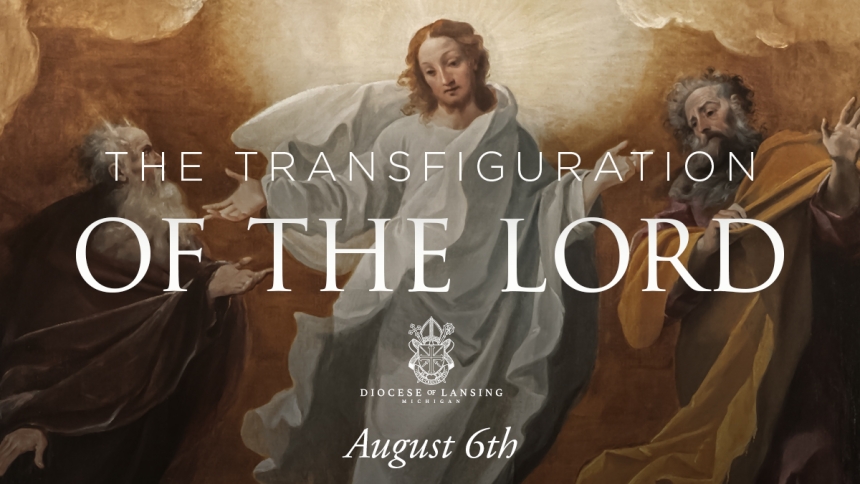
Happy Feast of the Transfiguration of the Lord! Today we recall the remarkable moment when the disciples Peter, James and John glimpse the divinity of Jesus Christ upon the mountain and in the presence of the Old Testament figures, Eli'jah with Moses (Mark 9:2–13; Matthew 17:1–13; Luke 9:28–36).
“And Peter said to Jesus, ‘Master, it is well that we are here; let us make three booths, one for you and one for Moses and one for Eli'jah.’ For he did not know what to say, for they were exceedingly afraid. And a cloud overshadowed them, and a voice came out of the cloud, ‘This is my beloved Son; listen to him’.” (Mark 9:5-7).
The disciples originally thought that Jesus was going to be a military leader who would throw off the Roman yoke and free them from oppression by the Romans, writes Sean O’Neill, Editor of FAITH Magazine, August 6, in a meditation upon the significance of today’s feast.
But when Jesus asked the disciples, “Who do people say that the Son of Man is?” (Matthew 16:13) it was Simon Peter who answered, “You are the Christ, the Son of the living God.” (ibid v.16)
Shortly after this, when Jesus began to tell them about how he was to suffer and die at the hands of the Jews, Peter remonstrates with him, which prompted Jesus to utter those damning words, “Get behind me, Satan!” (ibid v.23)
In the Gospels of Saints Matthew and Mark, the transfiguration takes place just after the above scene and you could be forgiven for thinking that Jesus staged the whole thing in order to convince Peter and the other disciples, James and John, that he was not an earthly Messiah, but a heavenly one.
Jesus’ clothes become dazzlingly white and his face shines with a bright light. This is not the sort of display that an earthly Messiah could pull off. As we’ve read, when the transfiguration took place, a voice from heaven declared, ‘This is my beloved Son; listen to him’.”
This command is addressed to us too. We should listen to Jesus. But more than that, because we are united with Christ in baptism, which makes us God’s sons and daughters through adoption, when God says, “This is my beloved son,” those words are addressed to us too.
Hence, questions we could ask ourselves are: Do I feel beloved? Do I believe God is pleased with me, delights in me, and loves me? Or do I believe that God disapproves of me because of my sin?
It’s worth thinking about what Jesus reaction is when confronted with sin in other people. Take, for example, the incident of the woman caught in adultery (John 8:1-11). Did Christ condemn her and allow the Jews to stone her to death? No, he forgave her, waived the punishment for her sin, and let her go with the instruction, “Go and sin no more.” (ibid v.11)
Let’s today dwell on those encouraging words of God the Father, “This is my beloved son (daughter).” Let’s open ourselves to that love and pass on that love to those we meet.
